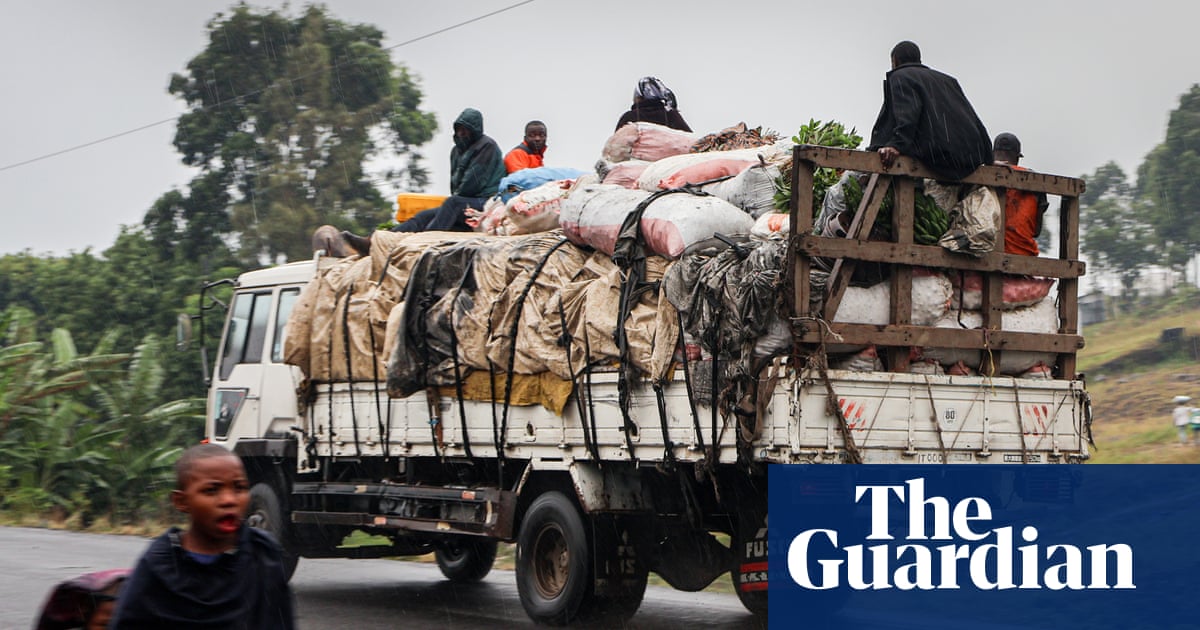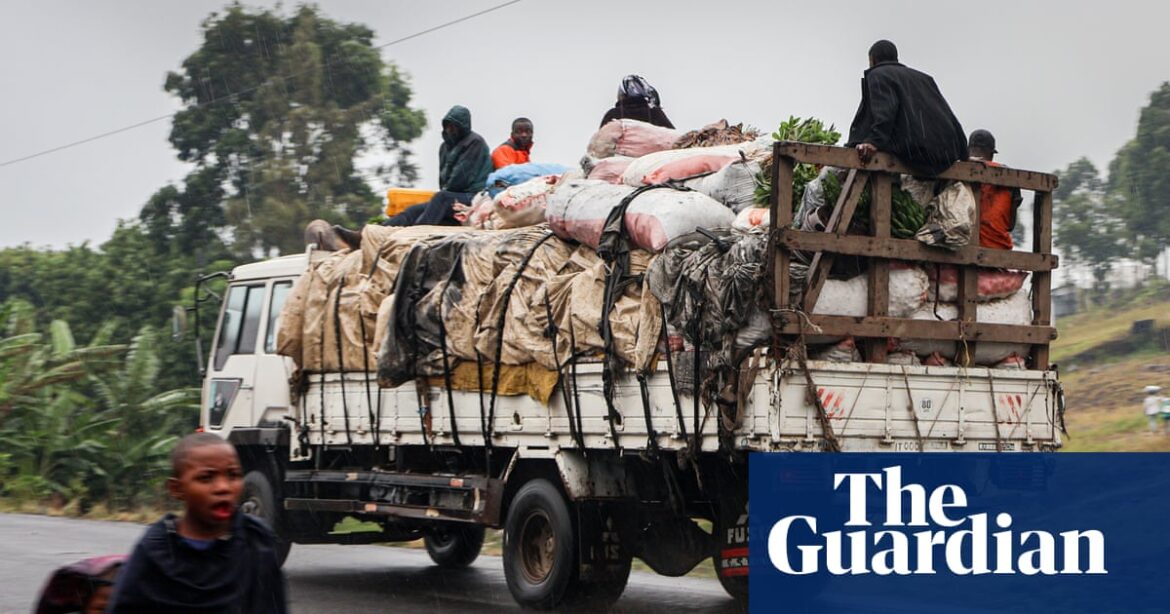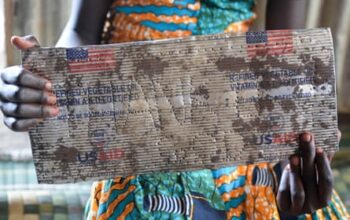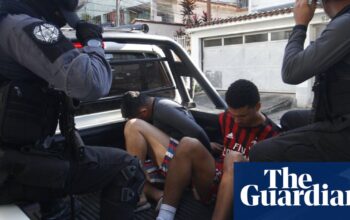
António Guterres has voiced alarm over the M23 rebel group’s advance towards eastern Democratic Republic of the Congo’s largest city, in a renewed insurgency that has displaced more than 178,000 people in the past two weeks.
In a statement, the UN secretary general said M23’s advance had had a devastating toll on the civilian population and heightened the risk of a broader regional war. “The secretary general calls on the M23 to immediately cease its offensive,” the statement said.
M23 has been advancing rapidly in eastern DRC in the past few weeks, surrounding Goma as it battles the Congolese army and tries to seize the city, the provincial capital of North Kivu province.
Earlier this month, the rebels captured Minova, Katale and Masisi towns. On Tuesday, they took control of Minova town, a vital trade hub for Goma about 30 miles from the city. Two days later, they captured Sake town, about 15 miles from Goma.
The advance has caused panic in eastern DRC, with bombs being heard going off in Goma’s outskirts and hundreds of wounded civilians brought in to the main hospital from the area of the fighting on Thursday.
Thousands of displaced people reached the outskirts of Goma as they fled the rebel advance.
Congolese helicopter gunships swooped low over the plains to fire volleys of rockets, and troops trucked towards the frontline to halt the rebels. Trucks loaded with soldiers and pulling cannon passed by, followed by an old spluttering Soviet tank.
Many Sake residents fled the M23 advance. Thousands of people escaped the fighting by boat on Wednesday, making their way north across Lake Kivu and spilling out of packed wooden boats in Goma, some with bundles of their belongings on their heads.
Neema Matondo said she had fled Sake during the night, when the first explosions started. She recounted seeing people around her torn to pieces and killed. “We escaped, but unfortunately others did not,” Matondo said.
Mariam Nasibu, who fled Sake with her three children, was in tears – one of her children lost a leg, blown off by shelling. “As I continued to flee, another bomb fell in front of me, hitting my child,” she said.
Decades-long fighting among regional armies and rebels in DRC has created one of the world’s largest humanitarian crises, with about 6 million people killed since 1998 and more than 7 million displaced internally.
Delphin Ntanyoma, visiting researcher in peace and conflict studies at the University of Leeds, said the fighting around Goma had worsened the humanitarian situation. “Local populations are caught in the crossfire. There is no safe place to flee,” he said.
M23, which is made up of Tutsis who left the Congolese army more than 10 years ago, is one of more than a hundred armed groups fighting against Congolese forces in the mineral-rich eastern DRC. The group has more than 8,000 fighters, according to the UN.
It controls Rubaya, a key coltan-mining region that brings it $800,000 (£644,800) monthly in taxes for production and trade of the mineral, the UN says.
DRC, the US and the UN all accuse neighbouring Rwanda of backing M23. Rwanda’s government had long denied this, but last year said it had troops and missile systems in eastern DRC to safeguard its security, pointing to a buildup of Congolese forces near the border.
In July, UN experts said in a report that 3,000 to 4,000 Rwandan government forces operated with M23 in eastern DRC. The Rwandan forces’ “de facto control and direction over M23 operations also renders Rwanda liable for the actions of M23”, the experts said.
M23 took over Goma for 10 days in 2012 but withdrew after international donors stopped aid to Rwanda over its support for the rebel group.
Guterres called on parties involved in the conflict to respect the sovereignty and territorial integrity of the DRC and “put an end to all forms of support to armed groups, whether Congolese or foreign”.
Agence France-Presse and the Associated Press contributed to this report
Source: theguardian.com



